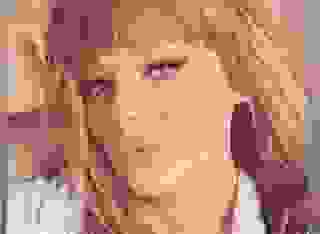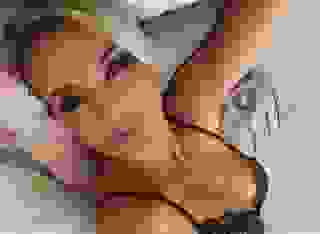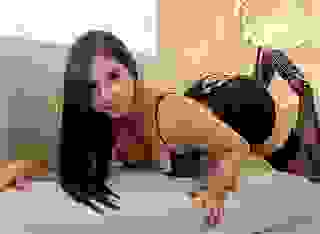- Non-Erotic Poetry
- Trilogy
Note: You can change font size, font face, and turn on dark mode by clicking the "A" icon tab in the Story Info Box.
You can temporarily switch back to a Classic Literotica® experience during our ongoing public Beta testing. Please consider leaving feedback on issues you experience or suggest improvements.
Click hereThe man of pride is standing with the eyes of Oedipus.
For him heaven beckons and only angels dare to weep
To see how mortal man acts out his mortal destiny
And see again the tragic circle begin its sacred beat.
The chorus has been chosen
The first act has now begun
Behold the man go on the stage with fire in his heart.
As he is lifted higher by the iron wheel of fate,
With gaze on far horizon, he does not see the holy joke.
This wheel will keep on turning until every man shall break.
The chorus has now spoken,
All the lines are plain and clear.
His doom is firmly written and he knows it underneath
But he fights against the knowledge and he keeps his fear at bay.
Yet all the while he knows that something dark awaits him there,
In the evil dream that has no end, the night that has no day.
The chorus is triumphant,
Their words have brought him low.
His world has cracked asunder, he hears the manic laugh.
As the potter's wheel is broken, there can be no second chance.
He will find no comfort then in the solace of remorse.
He should not have tried to spy upon the magic, Bacchic dance.
The chorus to Colonus,
Their dirge is growing weary.
Through sorrow and through pity our man finds the peace he craves.
For the Gods themselves decreed it thus; they bear the greater shame.
Until every tie is severed that binds him to the wheel,
Man must pay in every coinage. There can be no other way.
The chorus tell a third tale,
Sung with smug and pompous spite.
Look. Brother has killed brother and within the living grave,
Now Antigone must suffer for the mother father crime.
Sons of Jason carry wedding gifts and meet Medea's knife.
Cycle follows cycle in the drunken blasphemy of time.
The chorus end their story
And then turn and look our way.
For our children too lie crushed beneath that bloody wheel.
We make them pay a heavy price for the things that we do wrong
And give a bitter harvest when we sow our dragon's seed.
Generation unto generation, pain and guilt go on.
The chorus take off their masks
And then leave the sullen stage.
- COMMENTS
It's ok, Cleardaynow, no offence taken and anyway I agree with you that the effort is worthwhile both for classical literature and for your own art which gives a new very valid perspective.
Well done!
First, in response to specific queries:
Only angels dare to weep was Case 1, the idea that the rest of us are semi paralysed as we see the train crash unfolding and only angels see the full ramifications of what is happening and react accordingly to what is inevitable. Angels and heaven are not part of the Greek mythology but seemed to fit.
The iron wheel. I think a fresh crop of people rise and then get crushed with each cycle of the wheel – thus Antigone and her siblings are the cycle after Oedipus. The cycle of life and death.
Pelegrino, I fear I offended you with my somewhat flip take on the Greek myths and tragedies. I wanted to strip them bare of all the pomp that surrounds and smothers ‘great’ literature. Among non Greeks, relatively few of us these days will have read the Greek tragedies and most will have no more knowledge of them than say of Norse or Indian mythology. As well as explaining my poem I wanted to ‘sell’ the Greek plays and the whole incredible concept of tragedy. If one reader goes on to actually read the Greek tragedies then my comments will have been worthwhile. My apologies for having forgotten and omitted Ismene.
I agree with others that you do not *need* to explain your poem; however, I think it is nice that you've left comments with further commentary for those that might need it, and I don't see the harm in doing it. I wouldn't have picked on all the subtleties otherwise, that's for sure (at least, not without going after Medea and the Bacchae).
Now, about the poem itself. I think you've managed to pull off an "epic" feeling, with these long lines and full sentences. It's very musical, it flows very well. I found the rhyming curious, in my mind it just becomes lost effort due to the length of the sentences. But, at the same time, I think the pacing is great, so no real complaint there (again, just found it curious).
I thought these lines in the first stanza were confusing:
"For him heaven beckons and only angels dare to weep
To see how mortal man acts out his mortal destiny
And see again the tragic circle begin its sacred beat."
Now, English isn't my first language, so perhaps I'm just lacking what is needed to properly parse this chunk of text. My problem with it is that I have two readings:
case 1: "Only angels dare to weep as they see a mortal man acting out his destiny"
or
case 2: "Angels weep. And oh! To see how mortal man acts out his mortal destiny..."
So, what I'm saying is, if the correct reading is case 2, I feel there should be a point on s1,l2 (after "weep") to separate those sentences.
I like the image of the wheel of fate, of rising to the top and seeing far, to the horizon, while ignoring the inevitable downfall and crushing that is to come. However, I also think it is a problematic choice, for the *wheel of fate* is eternal. So it's up, down, up, down, up... Forever. It doesn't stop with the low tide. Why not use a more generic wheel? A "wheel of hubris", "wheel of the gods", or whatever, just to avoid the "wheel of fate", which has its own mythological bagage? Yes, I'm nitpicking... And to be honest, "wheel of fate" just sounds cooler. Hell, I don't know. Just a thought.
Really cool. Many great lines, very interesting. Thank you for sharing it.
I appreciate the education - but as we discussed before I think the poem is excellent on it's own. The explanations add some depth for the poorly read such as myself but here is what the poem did for me:
At first I didn't like it because of the futility it made me feel. However, because I am learning to think more about the "why" of what I like and don't like:
Began to realize how well it was written, how effortlessly the words evoked the emotion, no reaching, no contrivance.
Realized that happy, sad, or whatever - good poetry makes you feel SOMETHING. Good poetry does it without making you solve a riddle. Good poetry does it with combinations of words that can contain nuance, that can be interpreted, or can be enjoyed for the way they read and sound in your head as well as for the story or message. Enjoyment comes from recognizing and appreciating the above more than from the actual emotion or reaction evoked.
Okay most who read this will be thinking " what,did he just wake up? " Well, in a sense I did and I think both my poetry and comments will be much improved because of it. While I liked what I liked and didn't what I didn't I will spend more time thinking about why.
Thank you, Cleardaynow.








